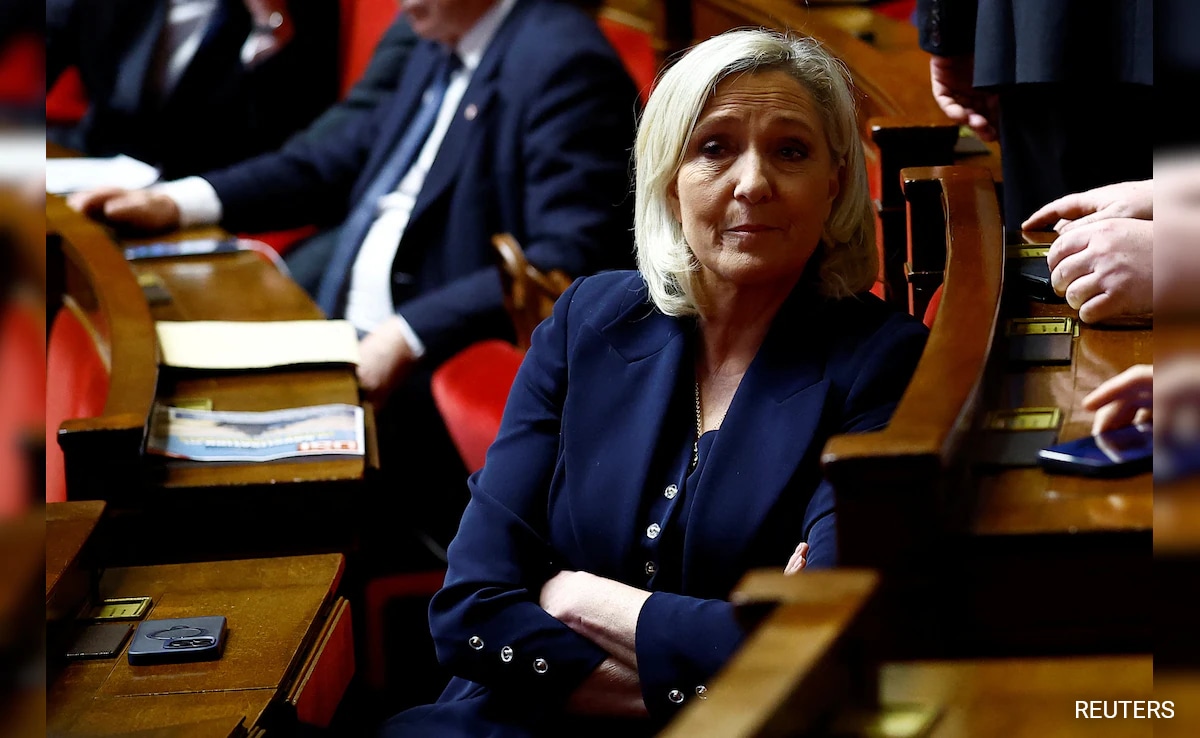French far-right leader Marine Le Pen appears to be betting her future on ousting President Emmanuel Macron before his term ends in 2027, lawmakers and analysts say. To do so, she has helped trigger France’s second political crisis in six months.
It’s a decision that may haunt her.
Prime Minister Michel Barnier on Monday chose to ram through parliament a key component of the 2025 budget bill after Le Pen and her National Rally (RN) party rejected a last-minute concession aimed at securing their support.
Barnier’s minority government is almost certain to lose the resulting no-confidence motion on Wednesday, brought down by the far right and the left combined.
The RN’s decision to wield the knife underlines the power of a once-fringe party that became the largest parliamentary force after this summer’s snap election.
But it is a risky play at a complex domestic and geopolitical moment from a party seeking to portray itself as a stable government in waiting.
And even if Le Pen’s gambit brings the RN to power sooner than expected, she will inherit the same fiscal mess that humbled Barnier, with investors increasingly alarmed by France’s 6% budget deficit.
“The RN is wrong to vote to topple the government because it will bear the responsibility,” Eric Woerth, a former minister and lawmaker from Macron’s camp, told Reuters. “It is they who will have pressed the button and no-one else… The RN has shown that it is not a party of government.”
Paul Molac, a centrist lawmaker, told Reuters the RN may be vulnerable to Barnier’s claims it seeks to “heap disorder atop disorder,” making it harder to win support from the moderate conservatives it needs to win the Elysee.
“Marine Le Pen wants to be president and she’s organising chaos?” said centre-right lawmaker Yannick Neuder.
The RN cannot topple the government alone and will need to join forces with the left, a group she has often described as a grave danger to France. That, too, could weaken her standing among more moderate conservatives.
Le Pen appeared aware of that danger, writing on X on Tuesday that critics alleging “collusion between the National Rally and (the hard-left) France Unbowed” were spreading “disinformation.” She has previously rejected accusations the RN are “artisans of chaos” as “fake news.”
EARLY ELECTION?
Le Pen on Monday said Barnier should have done more to incorporate the RN’s concerns given its strong showing in the election.
She said the constitution provided three ways out of the crisis. Two of them – a reshuffle or another dissolution of parliament – were currently unviable, leaving a third and final option: Macron’s resignation.
“This is the decision and the responsibility of the President of the Republic,” she said.
RN spokesman Philippe Ballard told Reuters Macron’s resignation “could be a way out” of the crisis.
Patrick Weil, a historian of the far right, said Le Pen had made a risky move but her reasons for doing so were clear.
“She wants an early election,” he said, predicting Le Pen would reject all Macron’s proposed prime ministers, forcing him into resigning. “It’ll be checkmate. If all the governments he names are rejected, what can he do?”
RN lawmaker Thomas Menage told Reuters any future government that failed to incorporate the party’s budgetary red lines “will very quickly face a no-confidence motion.”
Observers say a Macron resignation is unlikely but not impossible. Should he step down, the Senate president would step in until a new presidential election for a full term can be held.
As part of the budget negotiations, the RN had called for the scrapping of an electricity tax hike, to raise pensions in line with inflation, to scrap cuts to medication reimbursements, freeze a gas tax hike and cut France’s EU contributions.
TRYING TIMES
Le Pen’s political future may also be influencing her decision-making. She is on trial for embezzling EU funds, with a verdict due on March 31. Prosecutors have sought an obligatory five-year ban from public office that would prevent her from running for president in 2027.
Le Pen denies the allegations, and that her legal woes are influencing her calculations. Still, her attacks against Barnier’s budget intensified after the prosecutors made their request, and people close to Barnier said they thought the trial had forced her to change tack.
Ultimately, her hopes of reaching the Elysee may rest on winning an early election.
She’s not the only political figure to bet on a pre-2027 vote: Macron’s former Prime Minister Edouard Philippe in September announced his candidacy for “the next presidential election” and his allies said he wasn’t ruling out a presidential election as soon as 2025.
Macron, who can only be impeached by a two-thirds majority in both houses, has already rejected resigning early.
“But as we have seen before, Macron can surprise and shift from previous positions,” EuroIntelligence said in a note.
The crisis is unlikely to please investors who this week pushed French borrowing costs above those of Greece.
“The RN says ‘I don’t have the solution to plug the hole, it’s up to the government to plug the hole,'” said Woerth, the Macronista lawmaker. “It’s an incomprehensible, irresponsible position.”
(Except for the headline, this story has not been edited by NDTV staff and is published from a syndicated feed.)





